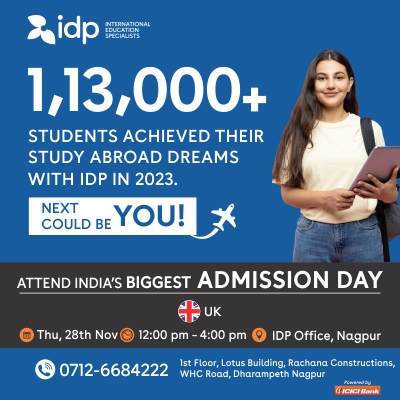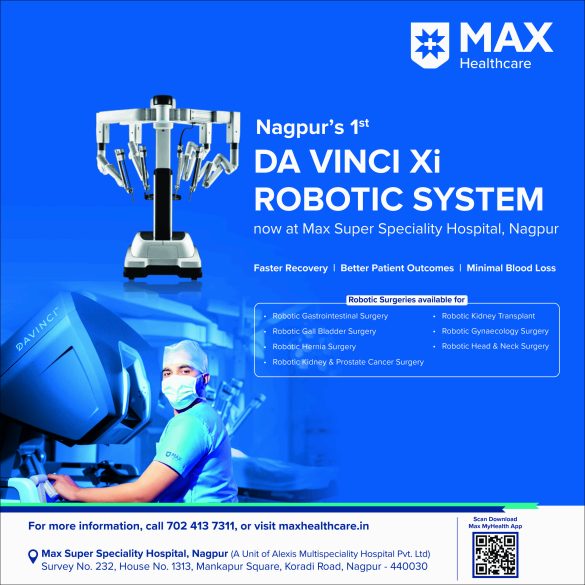The VIA HRD Forum, NIPM Nagpur Chapter, and IMT Nagpur jointly organized a session on “Cultural Audit for Organizational Improvement” on August 29, 2024, at VIA, Nagpur.
H. N. Shrinivas, Senior Advisor of Tata Skills Project, Tatas / Tata Trusts – Bengaluru University, guided the attendees on how culture building is all about creating positive energy in the organization in a manner that embraces its employees, stakeholders, vendors, etc. How you deliver value to your customers and employees is essential. He further added, there are two parts to an organization: the machine part and the human part. Most companies spend more time improving the machine part but generally ignore the human part. As we know, it is the human part that creates and builds the organization—they are capable of making or breaking it. Maintaining trust is the most important factor in any organization. If an organization gets positive energy from its people, if people are excited to work for the company, and if they want to be associated with the company, it’s because they know they can trust it.
There are 5-6 cultural pillars that are essential for building a strong organizational culture.
The first is Higher Purpose. This means wanting to make a significant contribution, changing the scenario, working with the best talent in the industry, and having a desire to learn more.
The second point is Total Employee Involvement. This doesn’t mean any fancy slogans; it’s a method of dreaming, a method of empowerment, and demonstrating performance.
The third point is Customer-Driven Quality. One should learn to listen to the customer’s voice because ultimately, the customer defines the quality of a product or service. Catering to their needs properly and knowing how to convert these needs into the desired product is key.
The fourth point is Management by Facts. Collecting data is very important in today’s time, such as customer satisfaction data and employee satisfaction data. Data drives your decisions, and it’s important to manage organizations based on data. Management by facts, not by fiction, is extremely important.
The fifth point is Journey by Continuous Learning. Gathering all the suggestions, opinions, and views of people working at the ground level, evaluating those ideas, and implementing them is crucial. As you improve continuously, you can reach a higher level of success.
These cultural pillars are important for development. It is easy to say you are customer-centric, but do you really practice it? Do you train your staff and employees? Do you empower them? Can they make decisions on behalf of the company, especially in the service industry?
If you practice these continuously, you will feel positive changes in the organization. Everybody will feel charged up. Warm welcomes and anticipatory services are minor elements, but if done regularly, you will ensure building a world-class company one day. Only focusing on financial performance while ignoring the human part is not the right approach. Culture building is all about getting the right people and training them with the right skills to get the right results.
Earlier, Anant Toal, National Vice President of NIPM, welcomed the speaker with a floral bouquet. A memento was also given by the VIA and NIPM Nagpur Chapter Team. Pradeep Andhare, Past Chairman of the NIPM Nagpur Chapter, in his welcome address, said the topic is very relevant for every organization to grow and adopt the best practices within the company.
Manoj Rajimwale, Principal Consultant HR, informed the audience about the contest setting.
Neelam Bowade, Convener of VIA HRD Forum, made the opening remarks and also introduced the guest speaker. A book titled Accelerated Action Learning written by Dr. Smita Singh (Dabholkar) was released. Dr. Suresh Pandilwar, Co-Chairman of VIA HRD Forum, summed up and proposed a formal vote of thanks.
The program was attended by industrialists, entrepreneurs, HR professionals / managers, and management students. Prominently present were Dr Anita Rao, Sharad Bhave from NIPM, and others.
The VIA HRD Forum, NIPM Nagpur Chapter, and IMT Nagpur jointly organized a session on “Cultural Audit for Organizational Improvement” on August 29, 2024, at VIA, Nagpur.
H. N. Shrinivas, Senior Advisor of Tata Skills Project, Tatas / Tata Trusts – Bengaluru University, guided the attendees on how culture building is all about creating positive energy in the organization in a manner that embraces its employees, stakeholders, vendors, etc. How you deliver value to your customers and employees is essential. He further added, there are two parts to an organization: the machine part and the human part. Most companies spend more time improving the machine part but generally ignore the human part. As we know, it is the human part that creates and builds the organization—they are capable of making or breaking it. Maintaining trust is the most important factor in any organization. If an organization gets positive energy from its people, if people are excited to work for the company, and if they want to be associated with the company, it’s because they know they can trust it.
There are 5-6 cultural pillars that are essential for building a strong organizational culture.
The first is Higher Purpose. This means wanting to make a significant contribution, changing the scenario, working with the best talent in the industry, and having a desire to learn more.
The second point is Total Employee Involvement. This doesn’t mean any fancy slogans; it’s a method of dreaming, a method of empowerment, and demonstrating performance.
The third point is Customer-Driven Quality. One should learn to listen to the customer’s voice because ultimately, the customer defines the quality of a product or service. Catering to their needs properly and knowing how to convert these needs into the desired product is key.
The fourth point is Management by Facts. Collecting data is very important in today’s time, such as customer satisfaction data and employee satisfaction data. Data drives your decisions, and it’s important to manage organizations based on data. Management by facts, not by fiction, is extremely important.
The fifth point is Journey by Continuous Learning. Gathering all the suggestions, opinions, and views of people working at the ground level, evaluating those ideas, and implementing them is crucial. As you improve continuously, you can reach a higher level of success.
These cultural pillars are important for development. It is easy to say you are customer-centric, but do you really practice it? Do you train your staff and employees? Do you empower them? Can they make decisions on behalf of the company, especially in the service industry?
If you practice these continuously, you will feel positive changes in the organization. Everybody will feel charged up. Warm welcomes and anticipatory services are minor elements, but if done regularly, you will ensure building a world-class company one day. Only focusing on financial performance while ignoring the human part is not the right approach. Culture building is all about getting the right people and training them with the right skills to get the right results.
Earlier, Anant Toal, National Vice President of NIPM, welcomed the speaker with a floral bouquet. A memento was also given by the VIA and NIPM Nagpur Chapter Team. Pradeep Andhare, Past Chairman of the NIPM Nagpur Chapter, in his welcome address, said the topic is very relevant for every organization to grow and adopt the best practices within the company.
Manoj Rajimwale, Principal Consultant HR, informed the audience about the contest setting.
Neelam Bowade, Convener of VIA HRD Forum, made the opening remarks and also introduced the guest speaker. A book titled Accelerated Action Learning written by Dr. Smita Singh (Dabholkar) was released. Dr. Suresh Pandilwar, Co-Chairman of VIA HRD Forum, summed up and proposed a formal vote of thanks.
The program was attended by industrialists, entrepreneurs, HR professionals / managers, and management students. Prominently present were Dr Anita Rao, Sharad Bhave from NIPM, and others.




